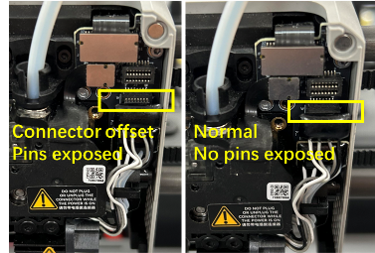¶ What it is
Nozzle temperature control mainly includes a heater and a NTC sensor. When the heater is short-circuited, the nozzle cannot heat up, which will cause the hotend to be unable to extrude the filament, and the filament may be jammed in the heatbreak.
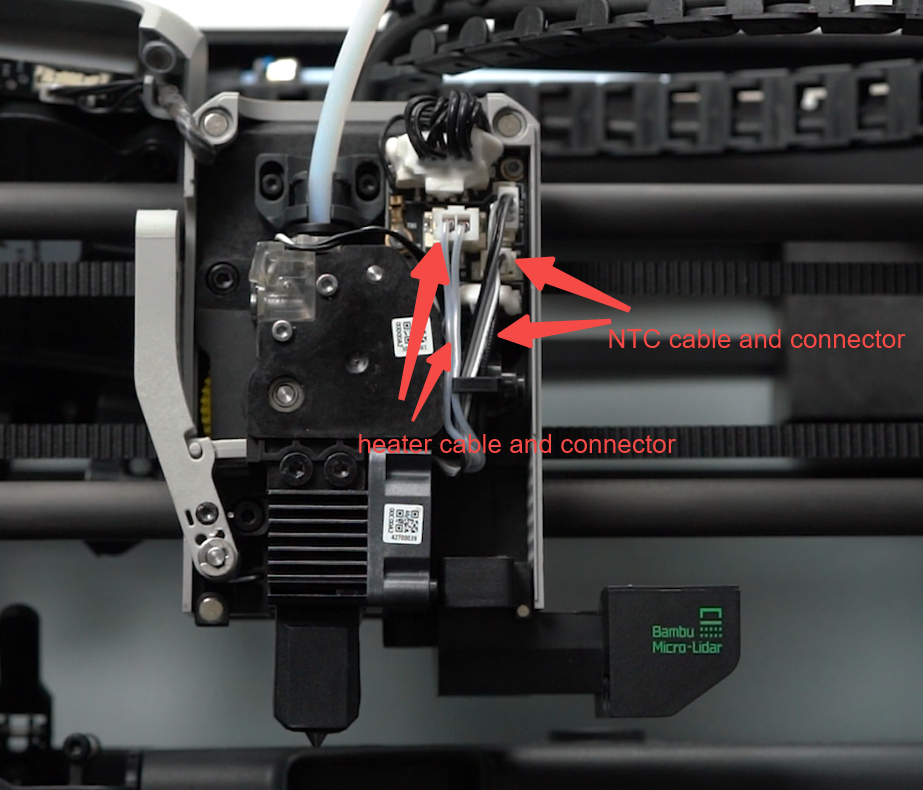 |
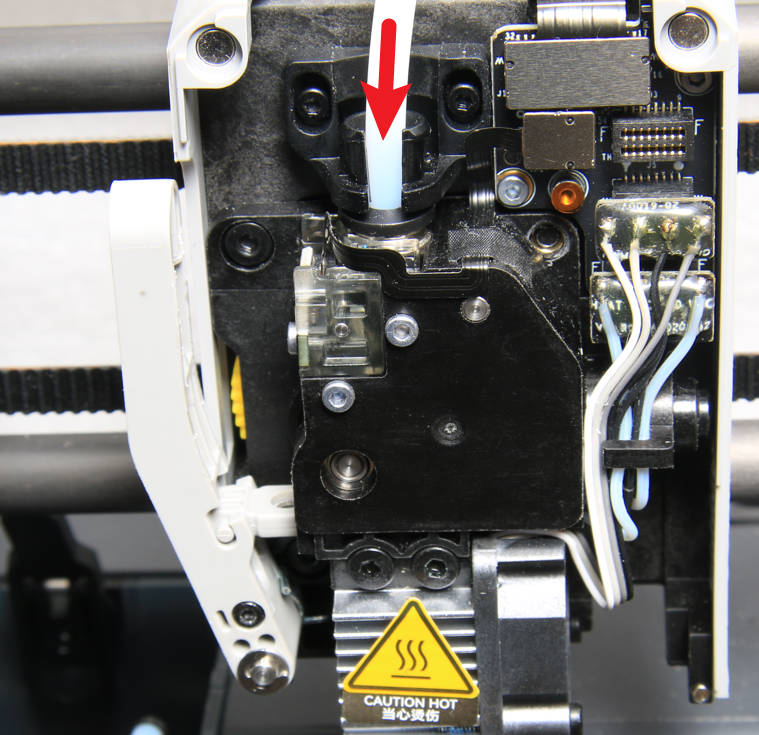 |
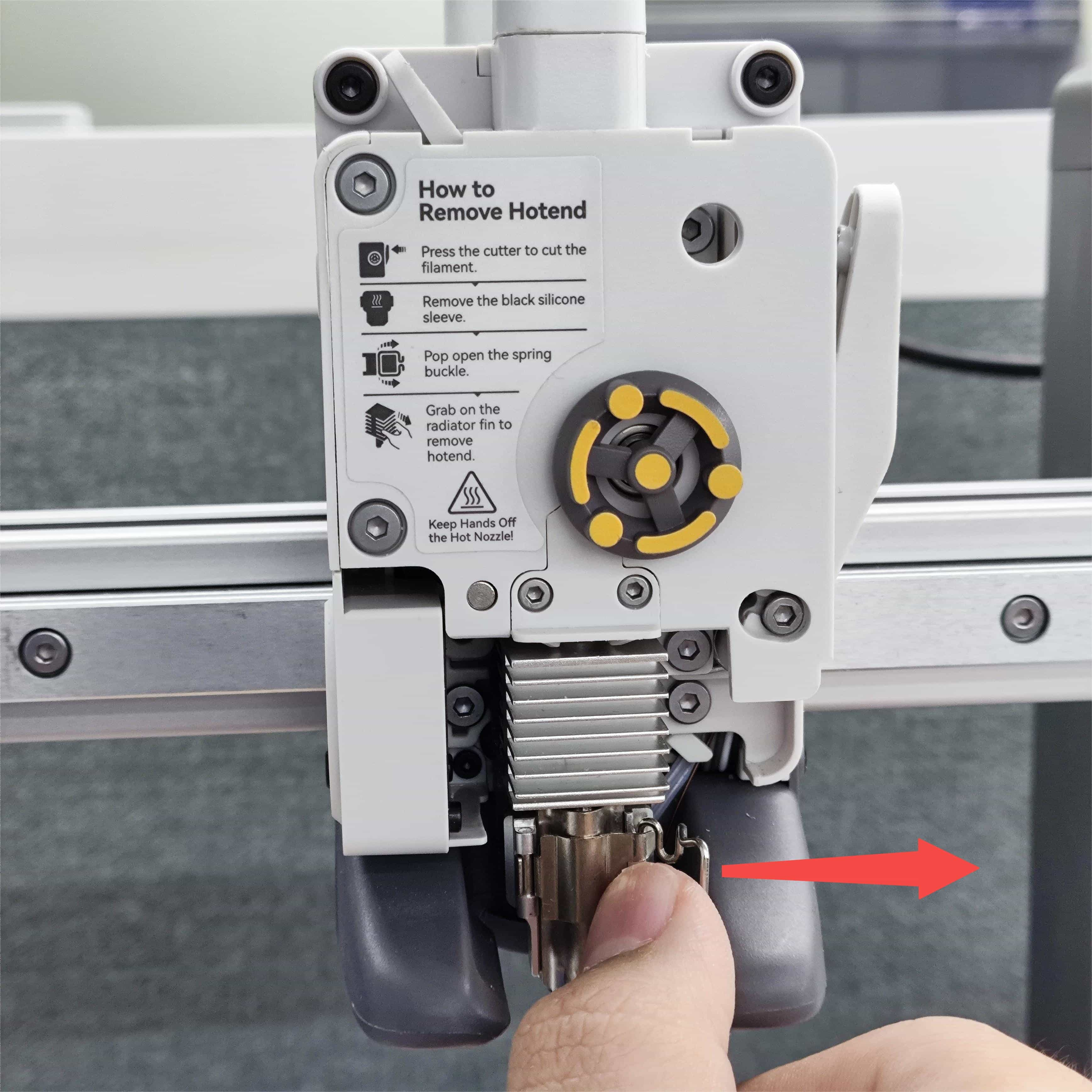 |
Below are the possible reasons that this HMS error occurs:
- A short circuit has occurred at the heater's connector or wires
- The heater is broken
- The TH board is broken
¶ Safety Warning
IMPORTANT!
- The nozzle temperature is very high; please avoid touching the nozzle.
- It's crucial to switch off the printer and disconnect it from the power source before doing any maintenance work. Otherwise, it could damage the electronics of the printer and cause further damage.
- It is crucial to ensure that the plug is aligned with the slot.
¶ Troubleshooting guide
¶ X1 Series Troubleshooting
¶ Re-plug the cable of NTC
Re-plug the cable of NTC and then check whether the error prompt disappears.
¶ Disassemble the hotend
Please refer to this wiki to disassemble the hotend and check if the NTC sensor or wire is broken.
¶ Measure with a multimeter
If you have a multimeter available, you can try measuring the resistance of the hotend component and follow the steps below to determine if there is a hotend malfunction.
The resistance of the ceramic heater at room temperature is typically around 12Ω, while the resistance of the NTC is around 50-100 KΩ:
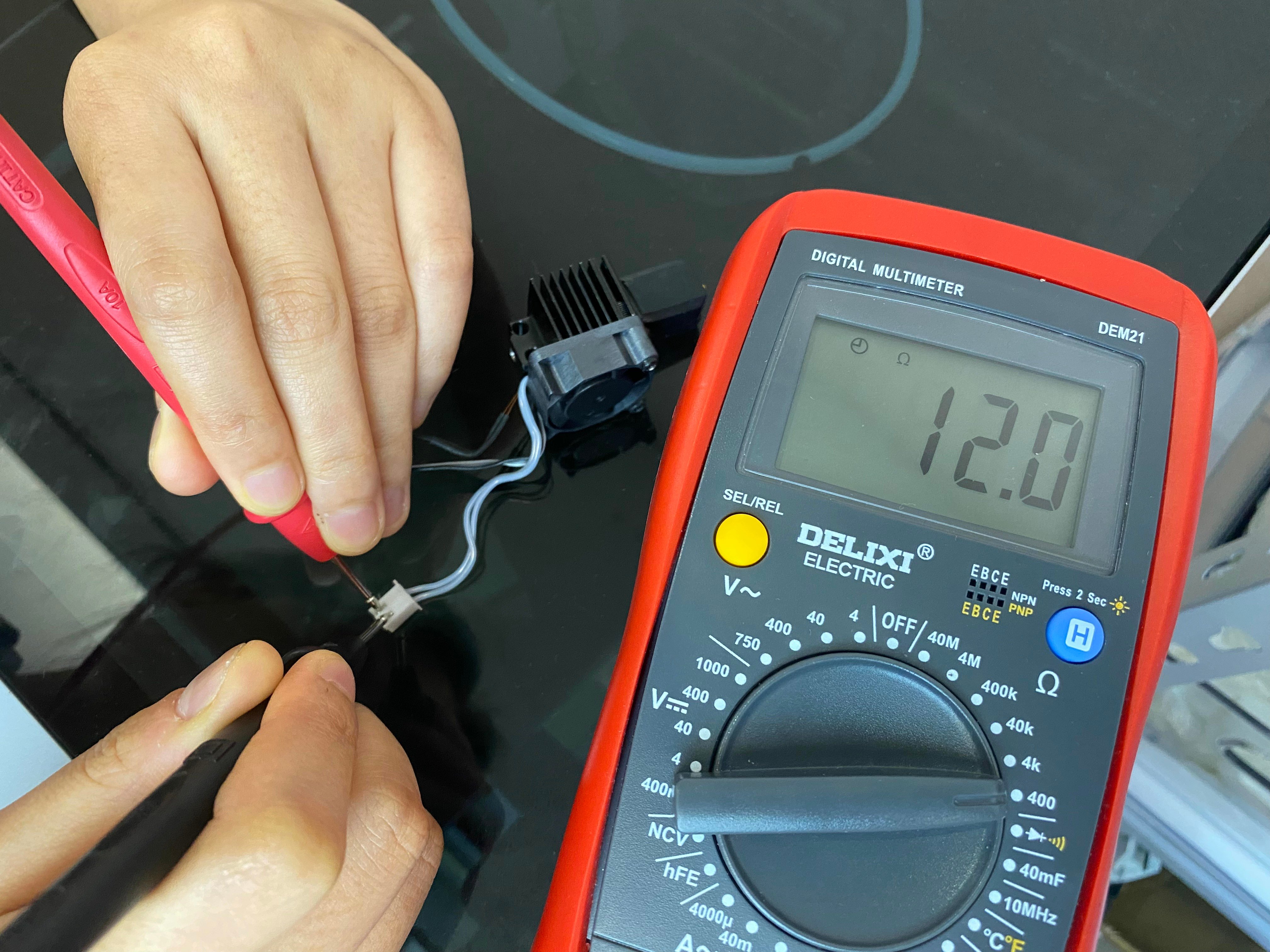 |
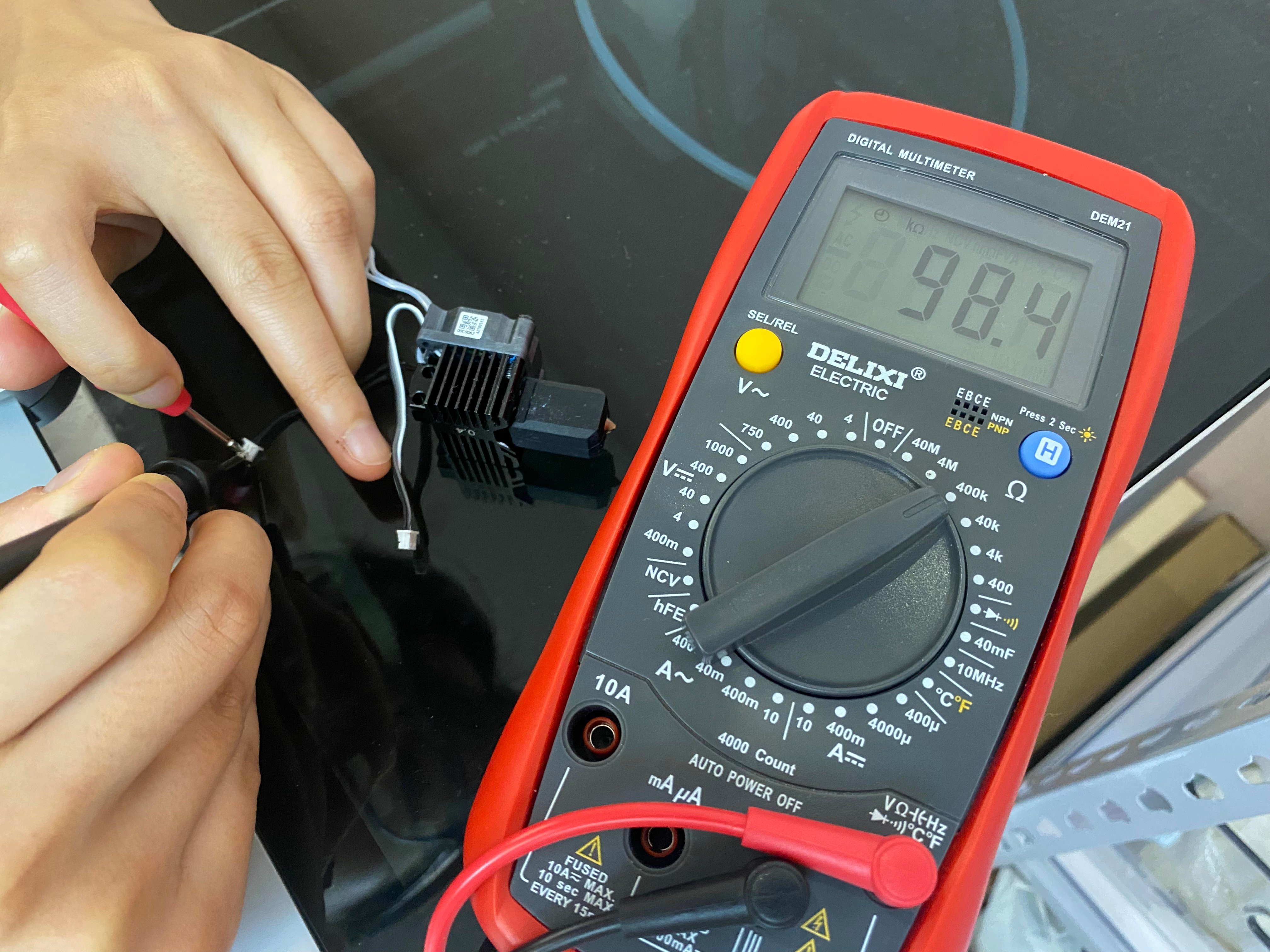 |
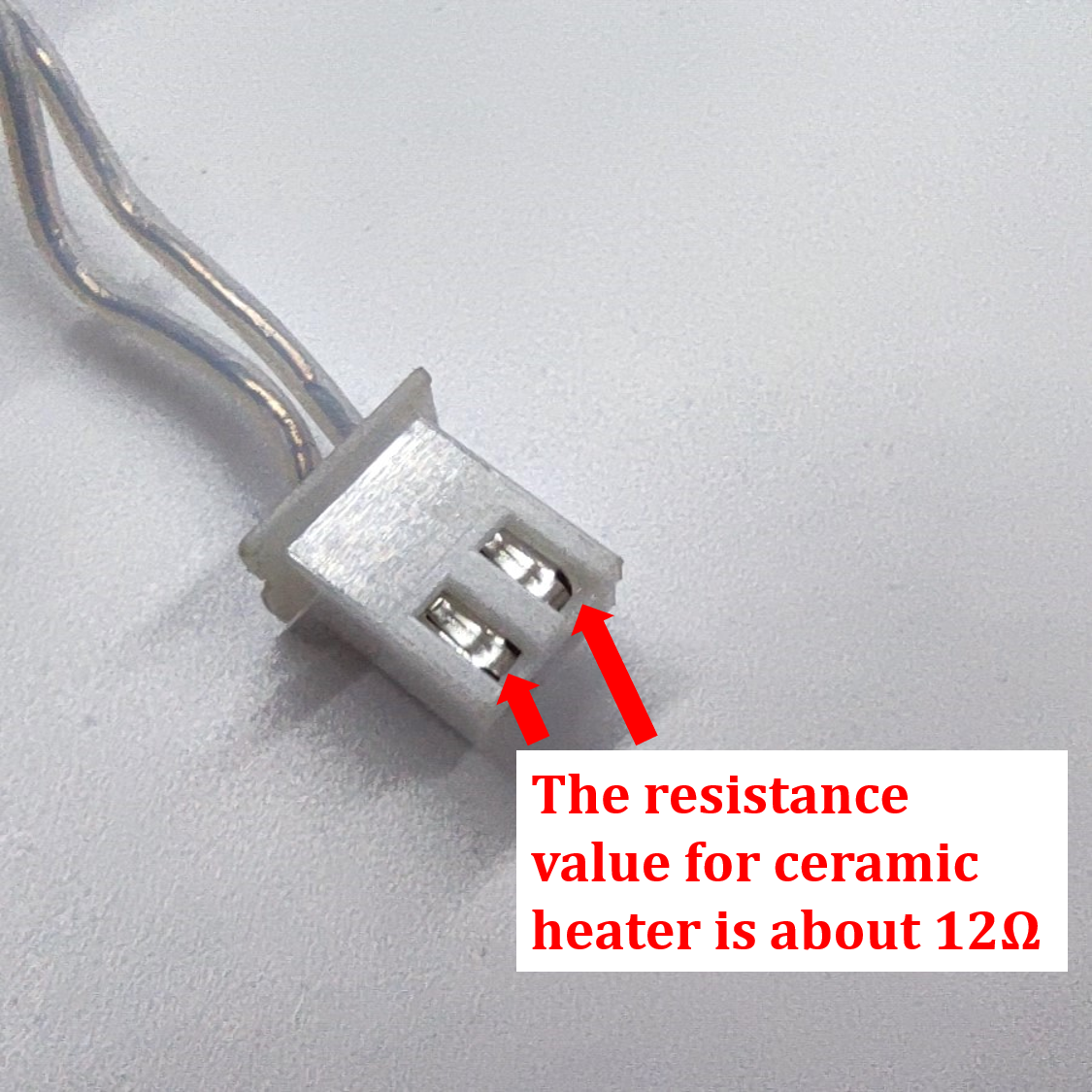 |
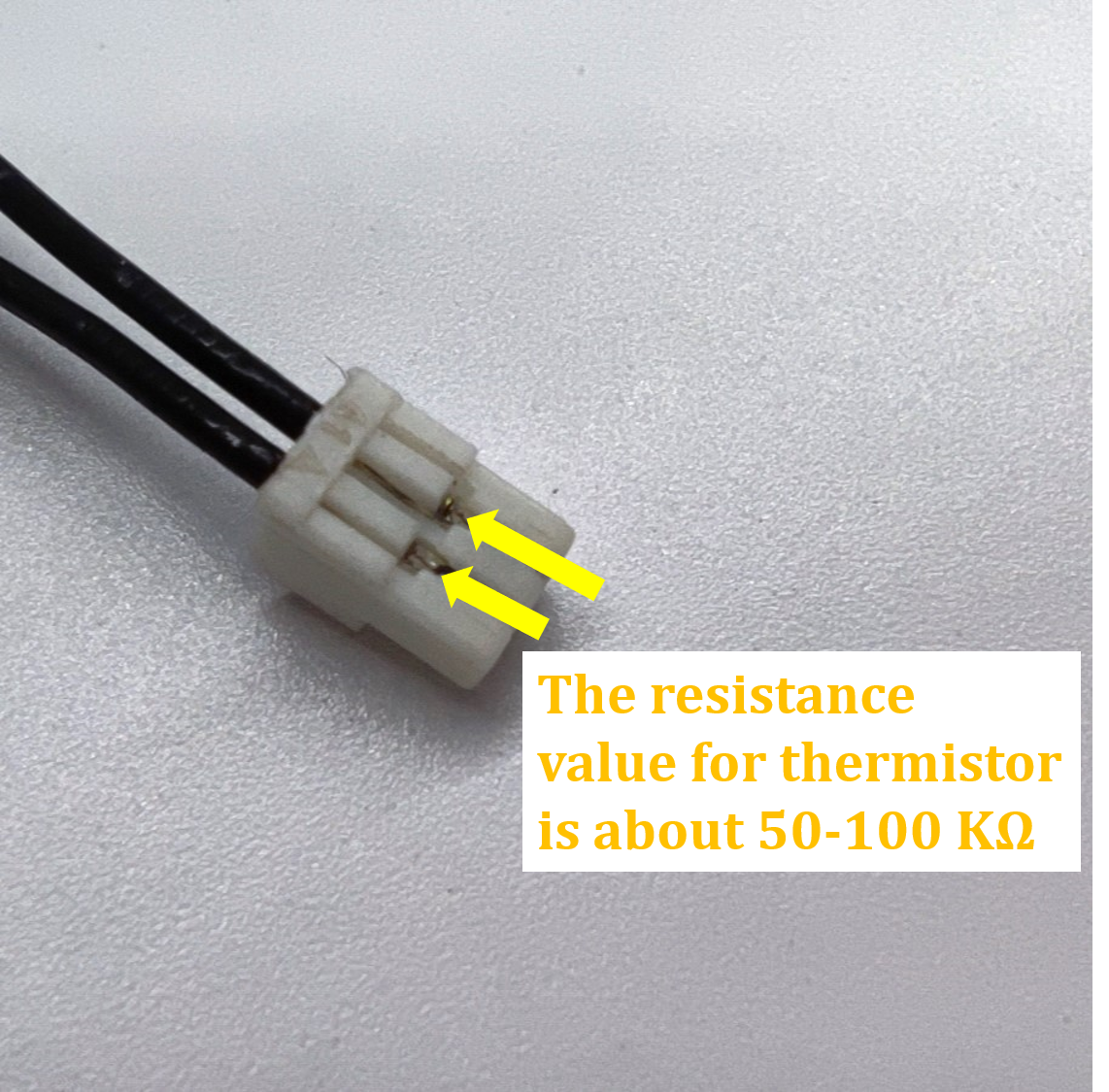 |
¶ Replug the 10Pin connector
If you have a V8 TH board, replug the 10Pin connector (sometimes it needs to be replugged several times); also check for any signs of burnout on the 10-pin plug. You need to remove the silicone with tweezers before replugging it. Then try again.
If you have a V9 TH board, reseat both ends of the FPC.
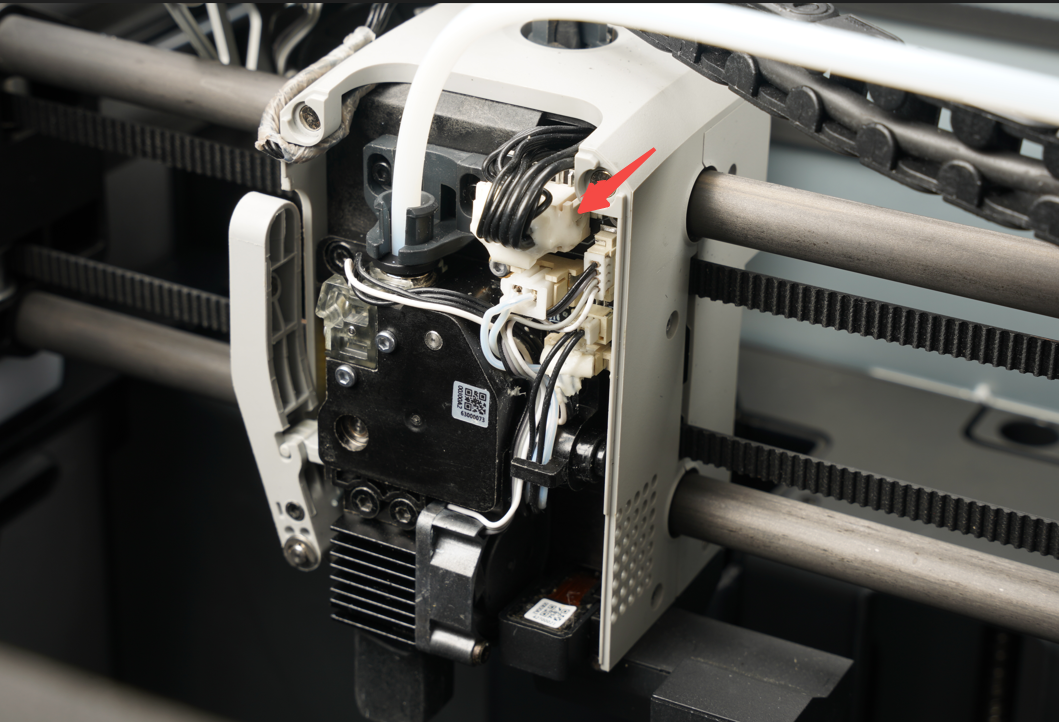 V8 TH board |
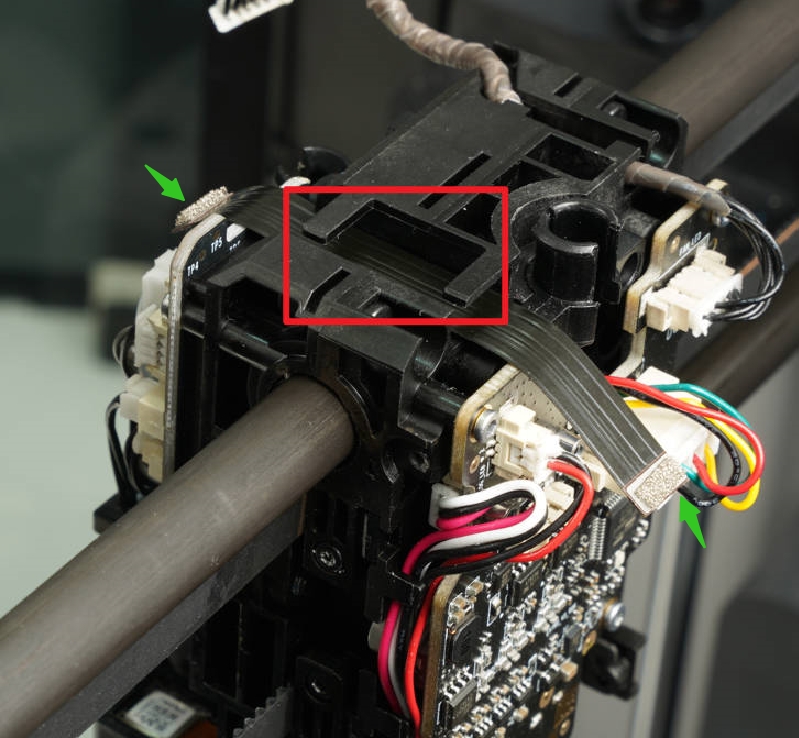 V9 TH board |
Please refer to the following wiki for more information:
¶ P1 Series Troubleshooting
¶ Re-plug the cable of NTC
Re-plug the cable of NTC and then check whether the error prompt disappears.
¶ Disassemble the hotend
Please refer to this wiki to disassemble the hotend and check if the NTC sensor or wire is broken.
¶ Measure with a multimeter
If you have a multimeter available, you can try measuring the resistance of the hotend component and follow the steps below to determine if there is a hotend malfunction.
The resistance of the ceramic heater at room temperature is typically around 10Ω (two pins indicated by the red arrows in the image below), while the resistance of the NTC is around 100 KΩ (two pins indicated by the orange arrows ):
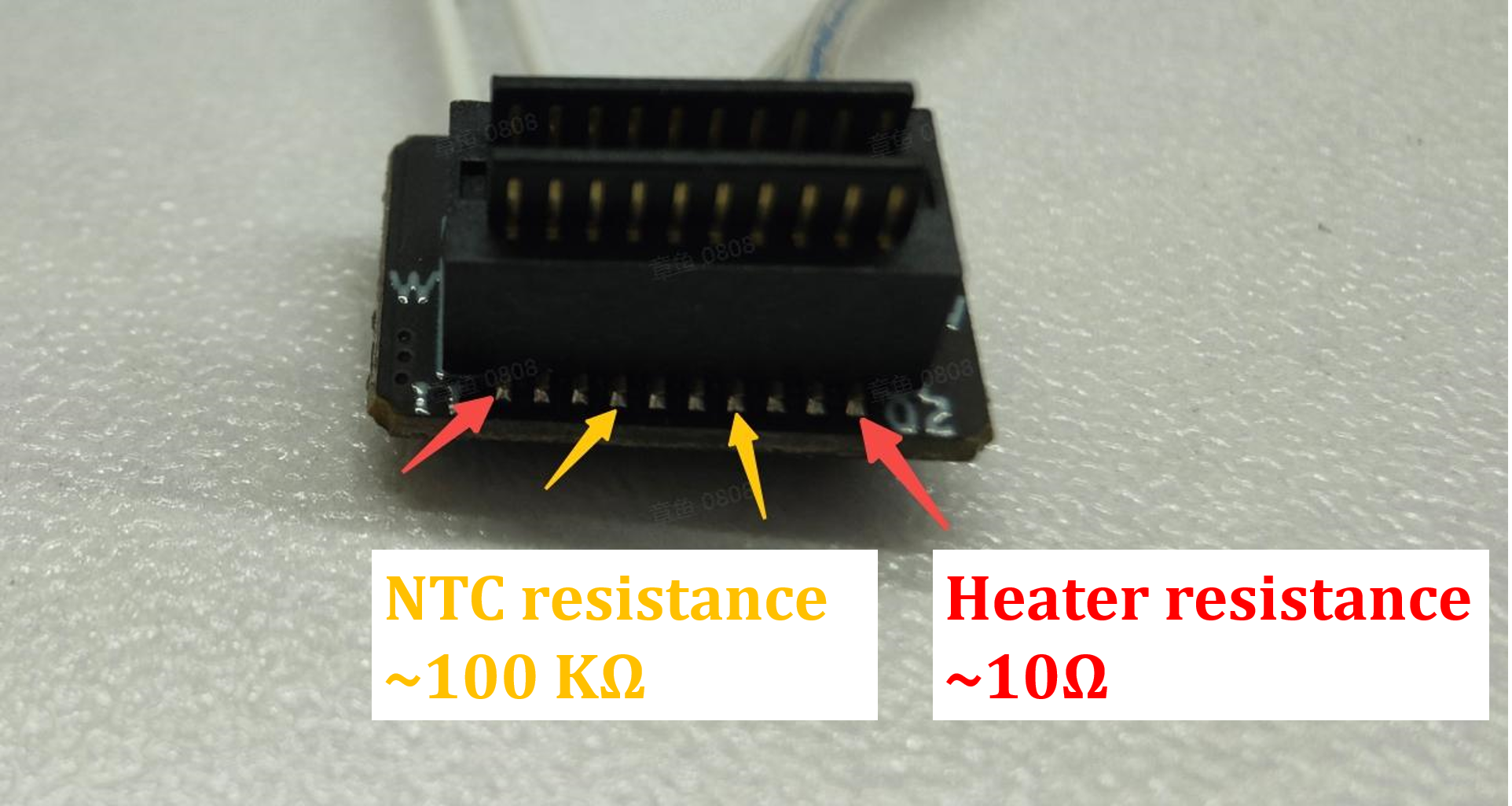 |
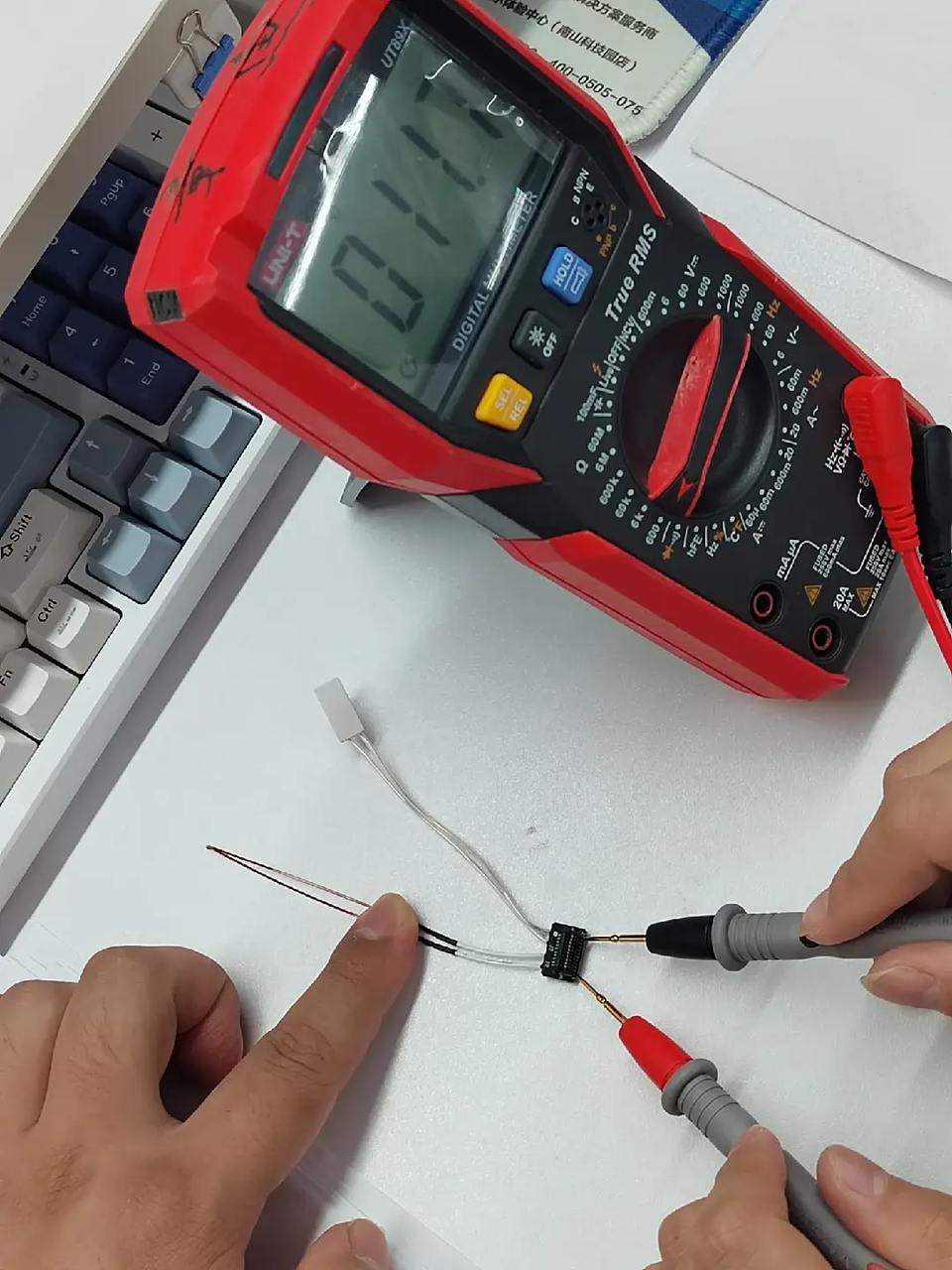 |
¶ Reseat the FPC
If the problem persists, reseat both ends of the FPC (sometimes you need to reseat it several times).
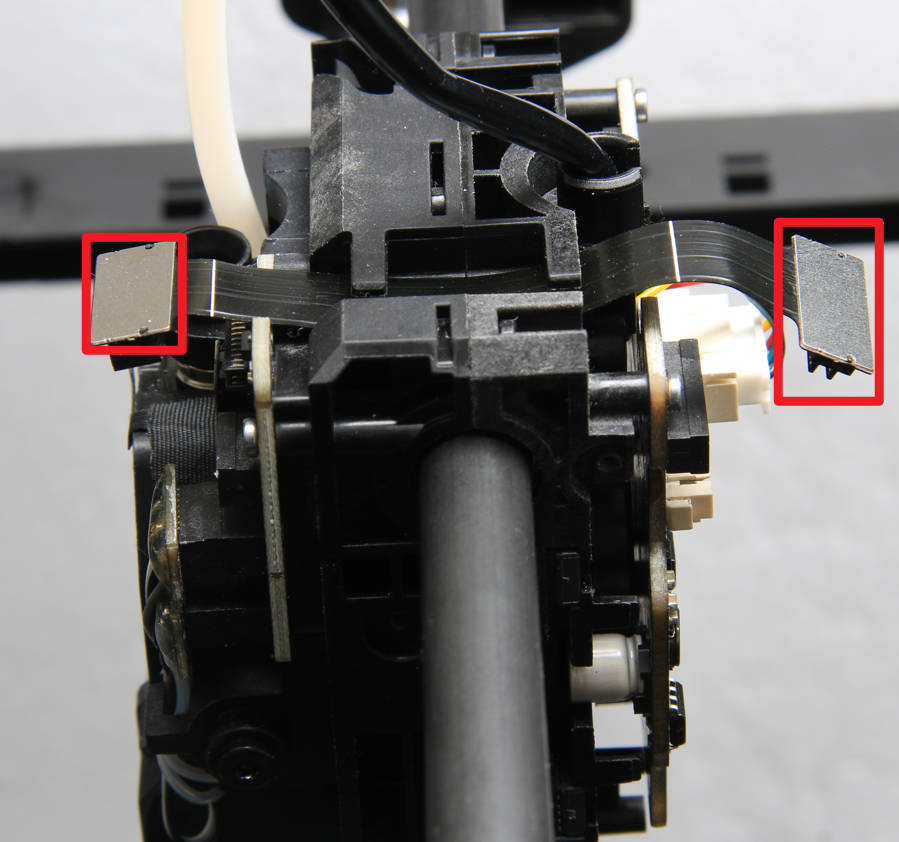
Please refer to the following wiki for more information:
PCBs on the toolhead of P1P | Bambu Lab Wiki
¶ A1 Series Troubleshooting
¶ Re-plug the cable of NTC
Re-plug the cable of NTC and then check whether the error prompt disappears.
¶ Disassemble the hotend
Please refer to this wiki to disassemble the hotend and check if the NTC sensor or wire is broken.
¶ Measure with a multimeter
If you have a multimeter available, you can try measuring the resistance of the hotend component and follow the steps below to determine if there is a hotend malfunction.
Typically, the error message for A1 series printers is 'Nozzle Temperature Malfunction'. To measure the resistance of the heating component, please remove the rear cover of the toolhead. The plug to be measured is the number 1 plug on the TH board.
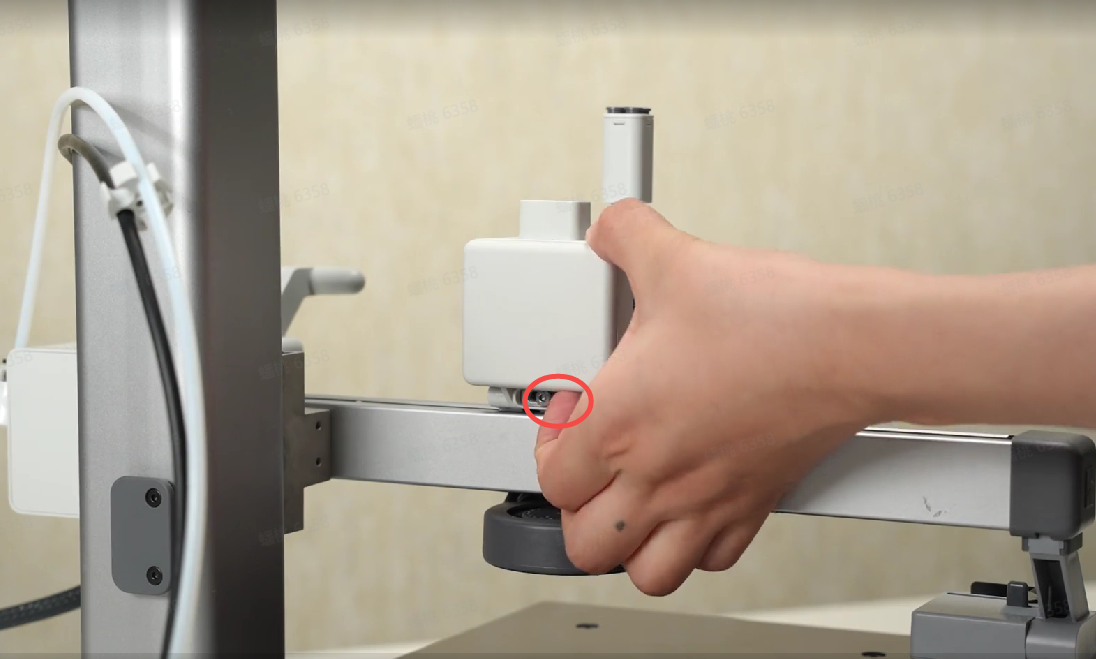 |
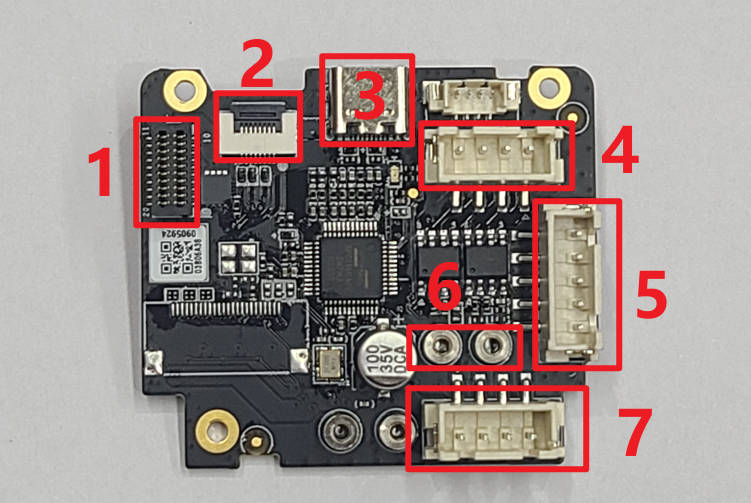 |
The resistance of the ceramic heater at room temperature is typically around 7Ω (two pins indicated by the red arrows in the image below), while the resistance of the NTC is around 100 KΩ (two pins indicated by the orange arrows, the resistance of NTC varies widely with temperature fluctuations):
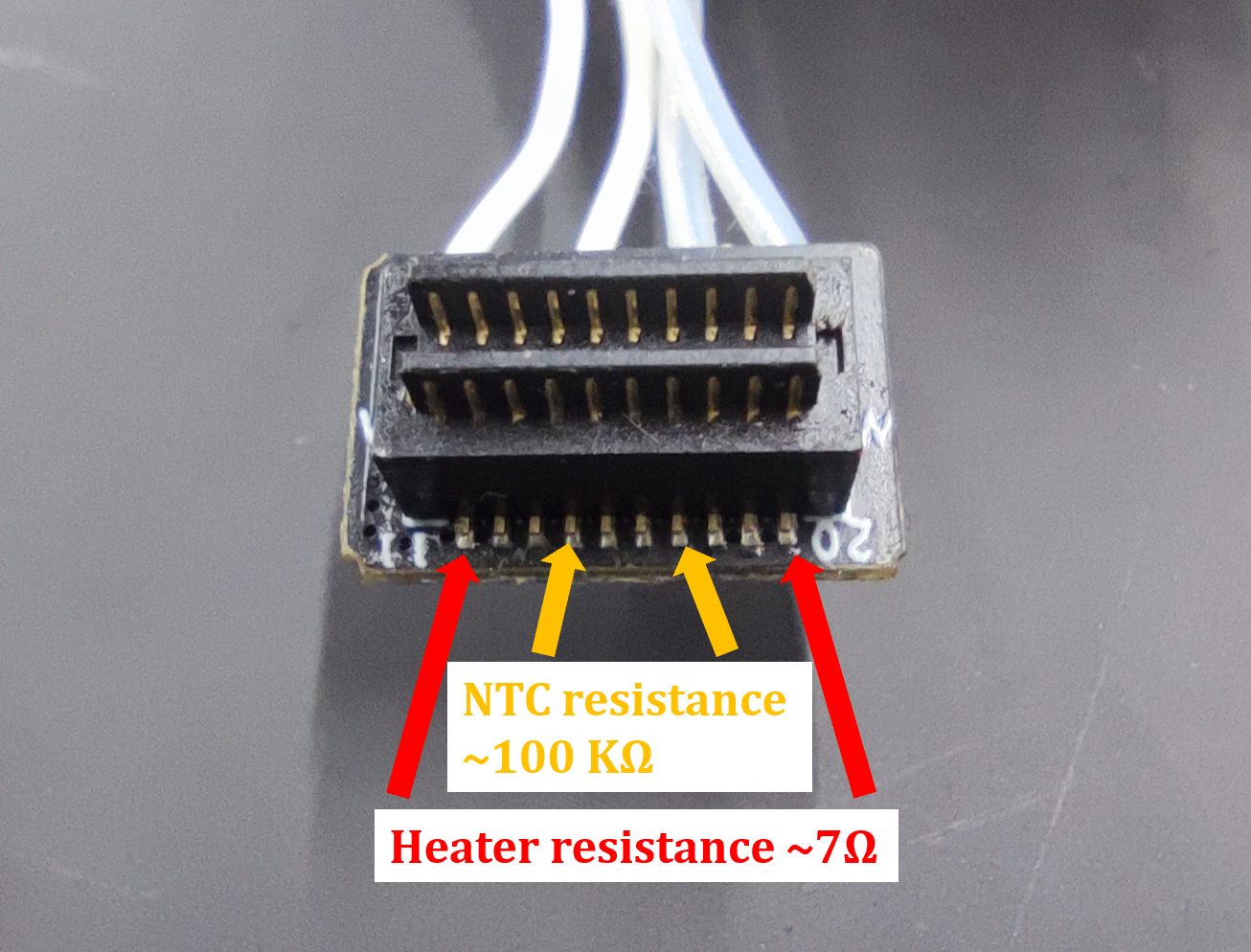 |
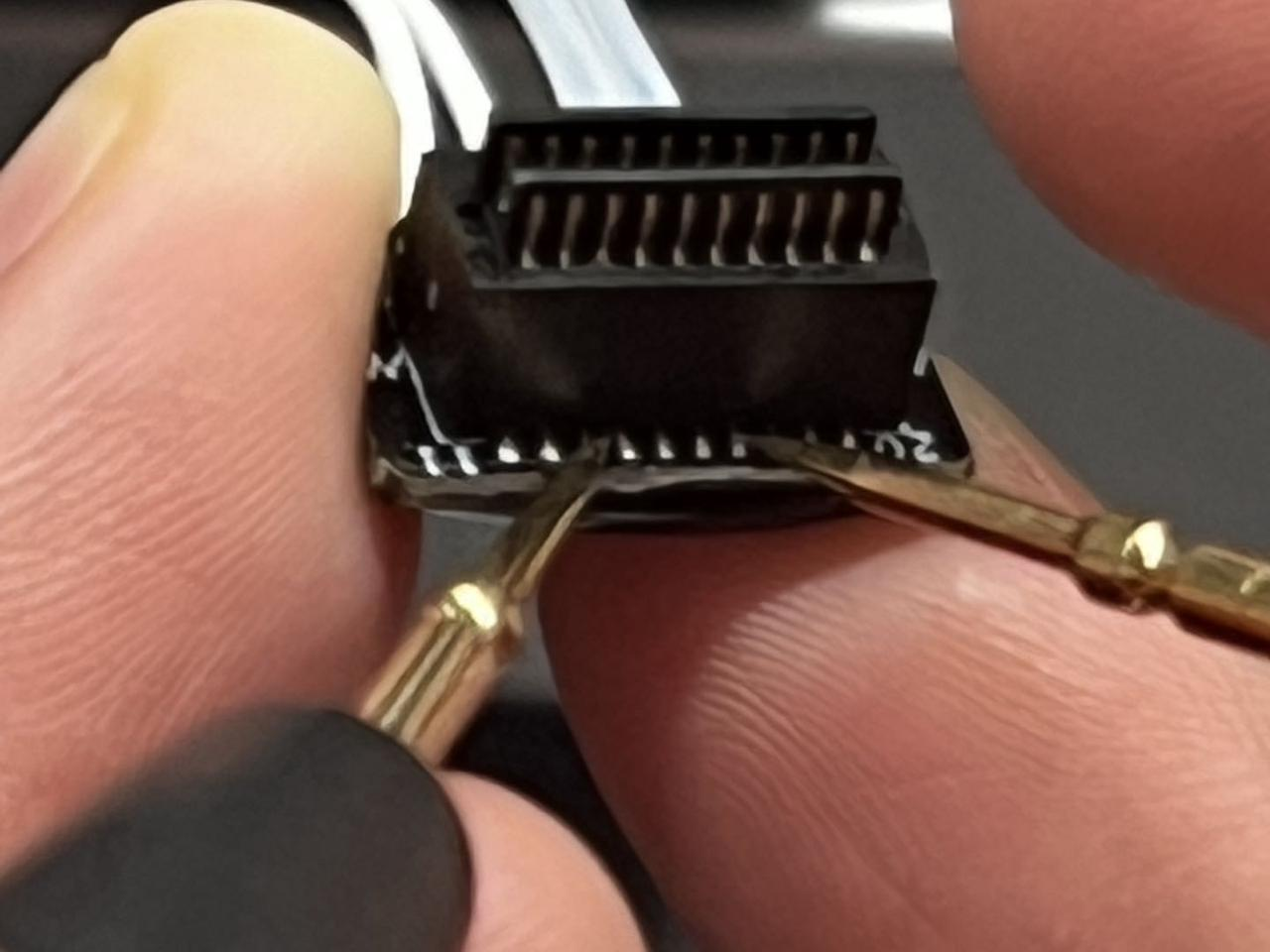 |
¶ Contact the after-sales
If the message still shows up, contact the after-sales team.
¶ Error message
HMS_0300-0200-0001-0007: The nozzle temperature is abnormal, the sensor may be open circuit.
"The nozzle temperature is abnormal, the sensor may be open circuit."
0300-0200-0001-0007
¶ End Notes
We hope the detailed guide provided has been helpful and informative.
To ensure a safe and effective execution, if you have any concerns or questions about the process described in this article, we recommend submitting a technical ticket regarding your issue. Please include a picture or video illustrating the problem, as well as any additional information related to your inquiry.
